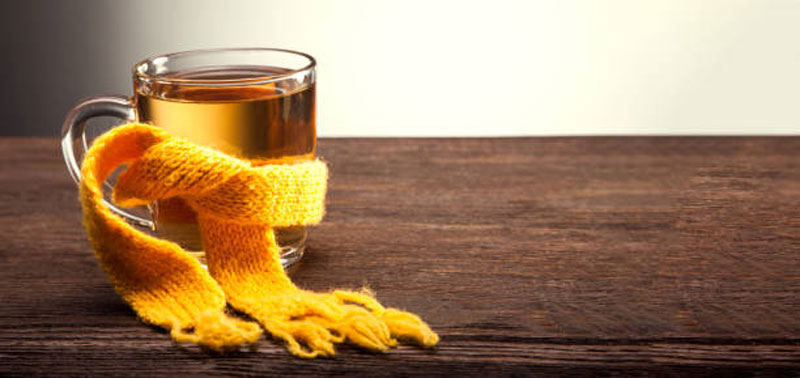
Colds are common – with the Centre for Disease Control estimating that most adults would get them about twice a year. It would be wise though to see a doctor if your symptoms do not clear up in a few days as you might have developed an infection.
Make friends with symptoms
An article on WebMD explains that if you have mild symptoms like a fever it is better not to fight it as this is the body’s natural way to fight the viruses. “A fever’s hot environment makes germ-killing proteins in your blood circulate more quickly and effectively. Thus, if you endure a moderate fever for a day or two, you may actually get well faster,” the article states. Coughing is also described in this article as “another productive symptom” as it clears the breathing passages of thick mucus.
“Even that stuffy nose is best treated mildly or not at all. A decongestant, like Sudafed, restricts flow to the blood vessels in your nose and throat. But often you want the increase blood flow because it warms the infected area and helps secretions carry germs out of your body,” it states.
Stay hydrated
In their analysis of cold remedies that work and those that don’t Mayo Clinic advises that it is important to stay hydrated. “Water, juice, clear broth or warm lemon water with honey helps loosen congestion and prevents dehydration. Avoid alcohol, coffee and caffeinated sodas, which can make dehydration worse,” the article states. They add that sipping warm liquids can ease congestion and be soothing advising patients to follow traditional cold remedies like taking in warm liquids, such as chicken soup, tea or warm apple juice.
In addition to traditional remedies, for optimal hydration and vitamin supplementation, you can look to mobile vitamin IV therapy services. These services offer convenient access to intravenous fluids and essential nutrients, directly addressing dehydration and supporting immune function
Infection-fighting food
WebMD also advises eating infection-fighting food like blueberries, carrots, chilli peppers, cranberries, mustard or horseradish to break up mucus and black and green tea because it contains a natural antibiotic to prevent further infections.
Gargle
Medical News Today describes and “old school remedy” for a sore throat: Gargling with salt water or water, salt, lemon and honey with the first onset of symptoms. Mayo Clinic gave this remedy the thumbs-up in their review. “A saltwater gargle — 1/4 to 1/2 teaspoon salt dissolved in an 8-ounce glass of warm water — can temporarily relieve a sore or scratchy throat,” their article read.
Vitamin C
Vitamin C has not been proven, for the most part to prevent colds but can shorten the duration of symptoms. Experts advise that Vitamin C may be beneficial to people who are at high risk for colds. The Harvard Health letter, unpacking the research done in this regard confirmed that while the vitamin have “modest” preventative power at best, research showed it to shorten the duration of a cold.
Toss the tissues
The Centre for Disease Control have some advice on how to prevent getting colds and flu but also how you can prevent others around you from getting sick. Wash your hands often. Throw your tissues away. According to the CDC the viruses that cause colds and seasonal flu are spread by droplets – when a sick person talks, coughs or sneezes or if you touch a contaminated object and then touch your face. This way the virus enters your mouth or nose. “Washing your hands for at least 20 seconds using soap and water is best for cleaning cold viruses off your hands. If you don’t have access to soap and water, consider carrying an alcohol-based hand cleaner with you,” the CDC advises. For the same reason they advise that it is not good to carry used tissues with you.
Zinc
According to the National Centre for Complementary and Integrative Health a review of studies have shown that Zinc taken orally (by mouth) may help to treat colds as long as you keep a look out for side-effects and make sure there are no interactions with medicines. The centre points out that a 2015 analysis of clinical trials found that oral zinc helps to reduce the length of colds when taken within 24 hours after symptoms start. You can now order high-quality supplements online through sites like Premier Formulas for some extra help in warding off cold and flu.
Comments
comments